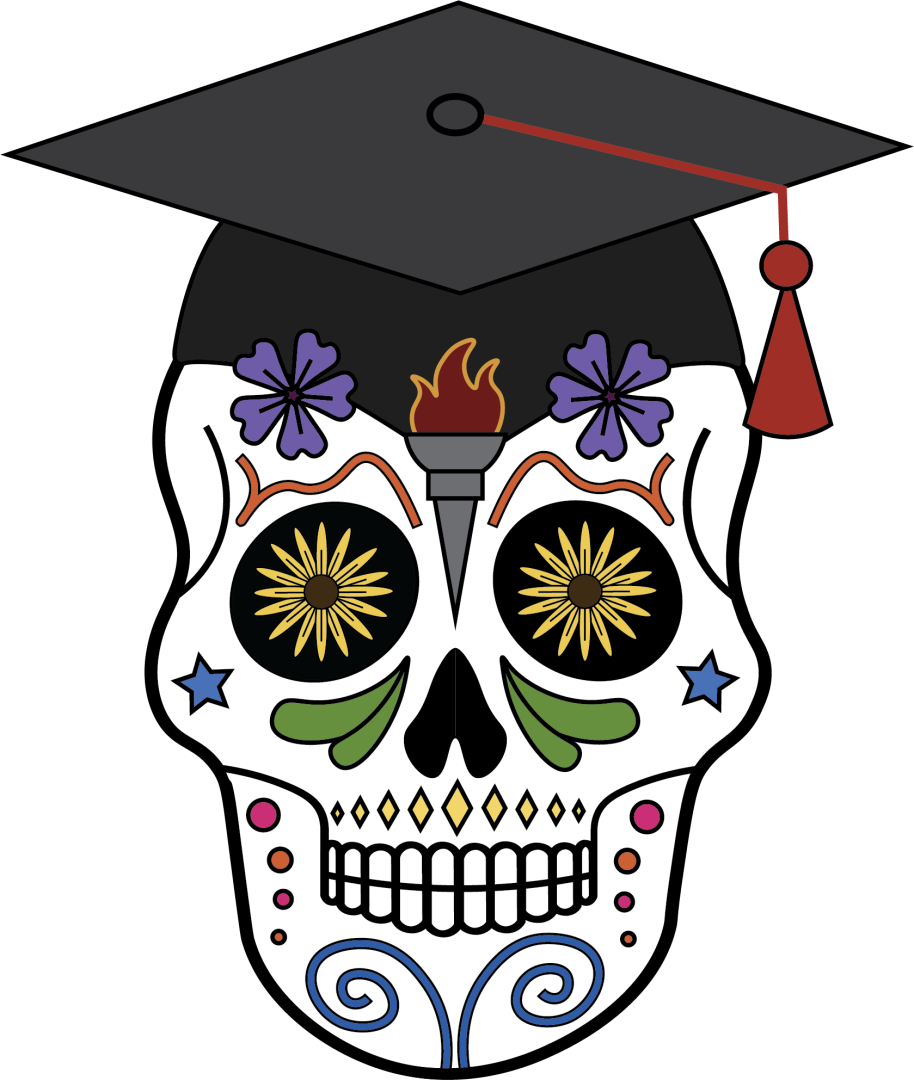The University of Indianapolis Student Counseling Center held a virtual Día de los Muertos event, for students to learn more about grieving processes in different cultures . This synchronous event was titled “Día de los Muertos: Grieving and Celebrating Life,” and was held Thursday, Nov. 2 according to an email sent by The Office of Student Affairs on Nov. 1. As of The Reflector’s press time, the UIndy Events Calendar offered a link to register for the event in advance as well as a virtual conference link. The event has since happened and is no longer available on the webpage; however, it was advertised in an email sent to students on Nov. 1.
According to the UIndy Events Calendar, students were provided with information about grieving in Latinx culture. There was a discussion on the importance of grief and the differences in grief between cultures. Students were encouraged to think about their grieving processes, regardless of whether they had recently experienced a loss or not.

University of Indianapolis Director of Institutional Belonging and Title IX Coordinator Cari Freed said these cultural events open up a space for people to appreciate Latinx culture. Freed said that these events help people experience and learn from a new culture that they may not be familiar with.
“Having an event like Día de los Muertos, not only is it building and re-establishing our community for [Latinx] students, but it’s also educating, informing and allowing people that aren’t in that culture to partake and participate in a way that isn’t appropriation. It’s more appreciation,” Freed said.
Not only did the UIndy counseling center hold a Día de los Muertos event, but the Student Organization of Latinx did as well, according to President of the Student Organization of Latinx Francisco Gomez. SOL held an in-person event the same day that included food, music and cultural activities. Gomez said not only did the event give an opportunity for students to feature their family members on an altar but it also highlighted important members of the Mexican and Central American community.
Freed said that events like this help to foster a community on campus, however, these cultural events were not always so prominent at UIndy. Freed said she can recall some of the cultural events that took place when she was a student here, or lack thereof.
“I am a two-time alum and I started in the fall of 2015… I remember diversity being important on our campus. The flags were always here,” Freed said. “We’ve always had these student organizations. I don’t remember there being this high amount of other students of color, there definitely were other students of color, I know SOL existed, but I didn’t know what all they did.”
According to Gomez, cultural events provide people who may be in the minority a safe place where they feel belonging. These events help foster identity and belonging, according to Gomez.
“For students and individuals who may be living in areas where they don’t have a large community here, it may be a great way for them to strengthen their own sense of self-identity here on campus,” Gomez said. “It’s a great way for our community, Which is a very small minority, here to be able to say, ‘Hey, I recognize something.’”
According to Freed, events like Día de los Muertos: Grieving and Celebrating Life foster a community of diversity, inclusivity and make people feel like they belong. UIndy wants this to translate into the curriculum, programming, and in the faculty and staff, Freed said.
“Inclusion is making sure that those diverse identities are able to show up as their full selves, and show up as the people that they are and that they have that seat at the table… You should still be able to see yourself reflected in that curriculum,” Freed said. “You should still be able to see yourself reflected in the programming that’s put on on campus. You should also be able to see that reflected in your faculty and staff community.”
Gomez said because the Latinx community is a minority on campus, this event is an opportunity for people to learn about their culture. The events are an opportunity to celebrate culture, regardless of your ethnicity, Gomez said.
“Our [Latinx] population is only around 9 percent at the University of Indianapolis,” Gomez said. “And with that, SOL’s main mission over the last three years that I’ve been here has been really to try to create not only a place of education for students who aren’t part of our community, but also foster that sense of community and to really create a place of strength and identity for our community.”
The Día de los Muertos event is not just for the Latinx community. This event was open to anyone and allowed for a space to educate and promote a better understanding of the culture, according to Freed.“Not only does it allow our [Latinx] community to celebrate something that is important to their heritage, but it also allows other people who might not be exposed to things like Día de los Muertos, to understand what it means. It might even be something that helps de-stigmatize.” Freed said. “Like, the sugar skulls that people talk about and wear. A lot of people take on that heritage and wear them as costumes during Halloween and things like that without really understanding the implications or what it really means for people.”







